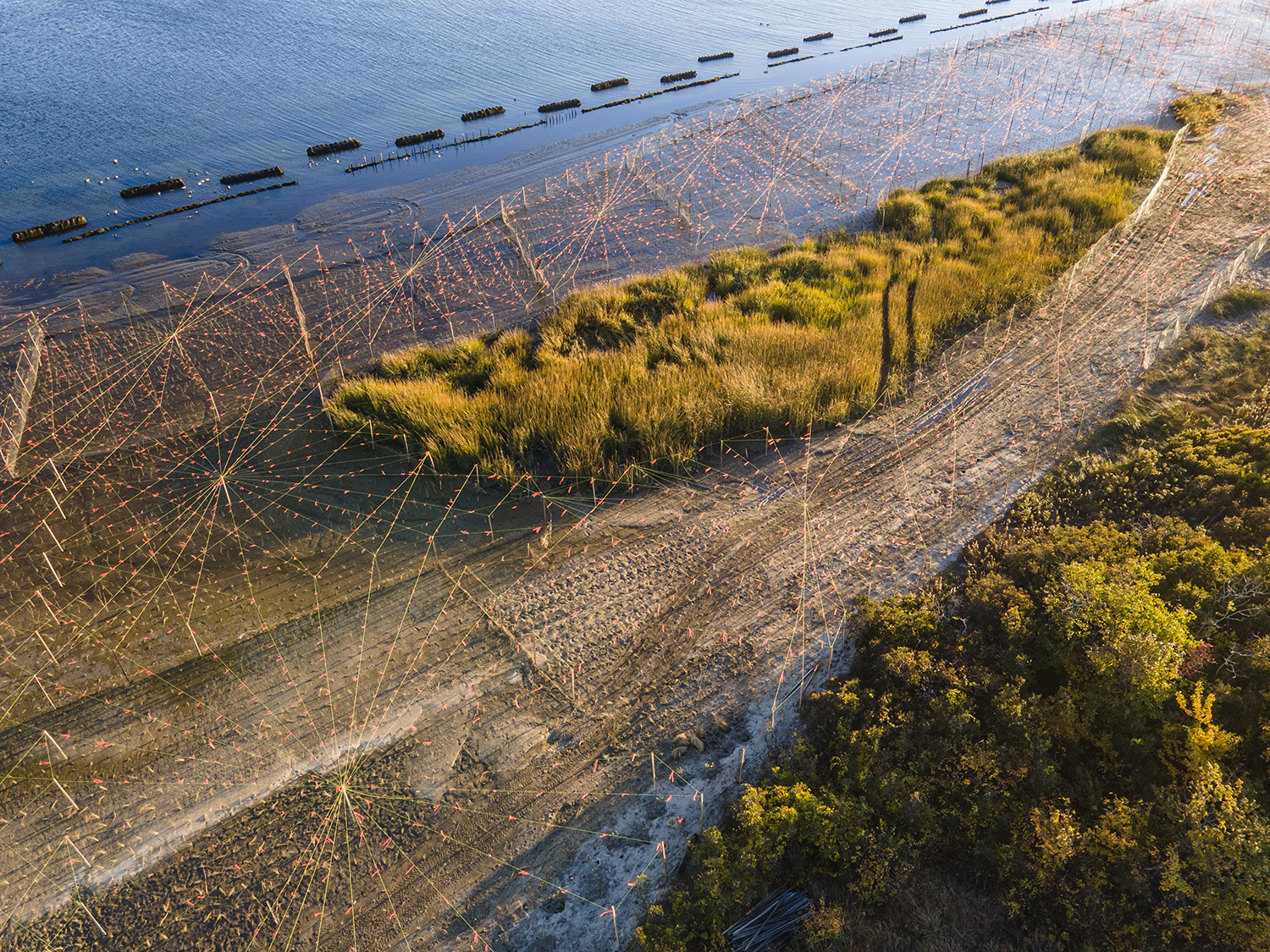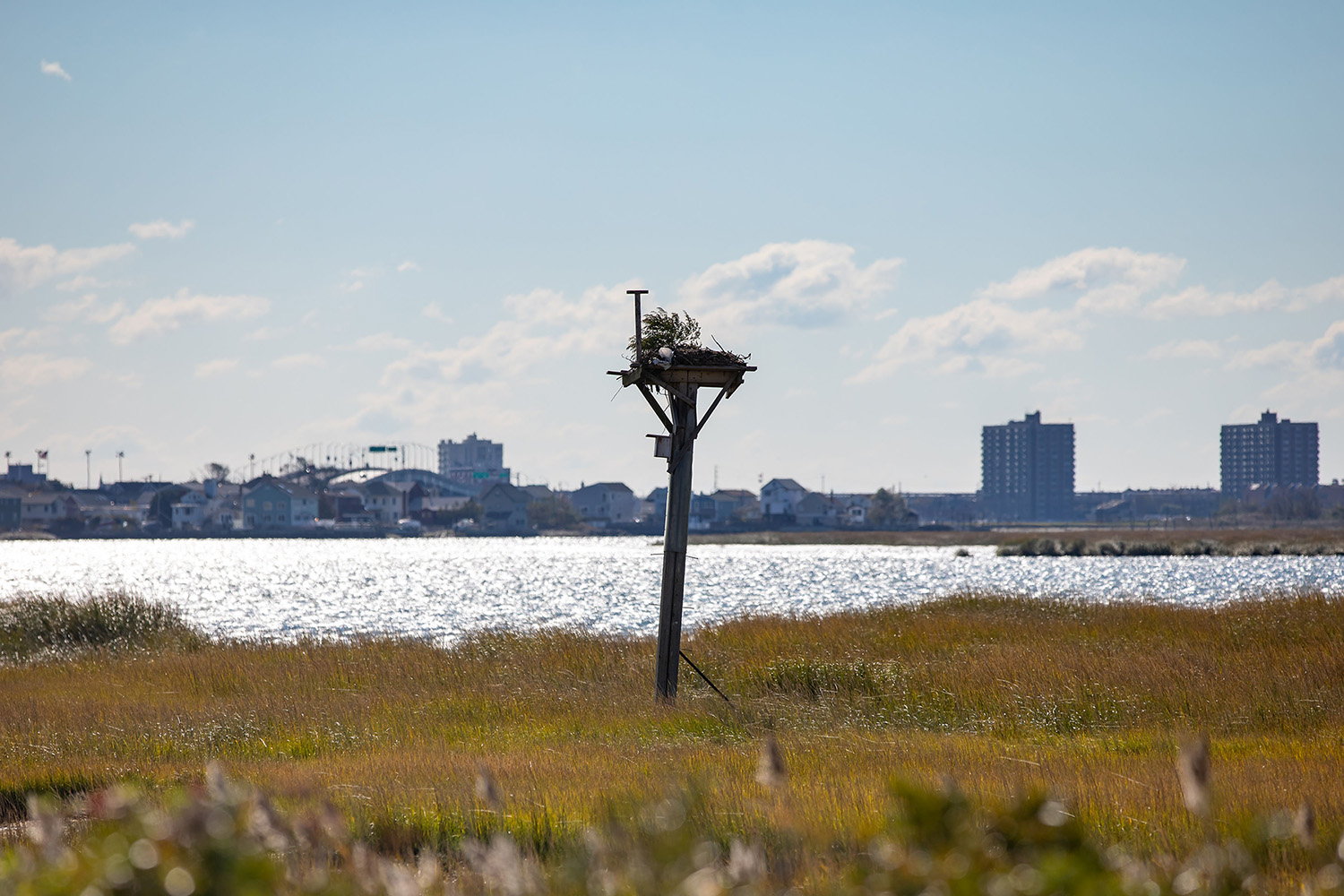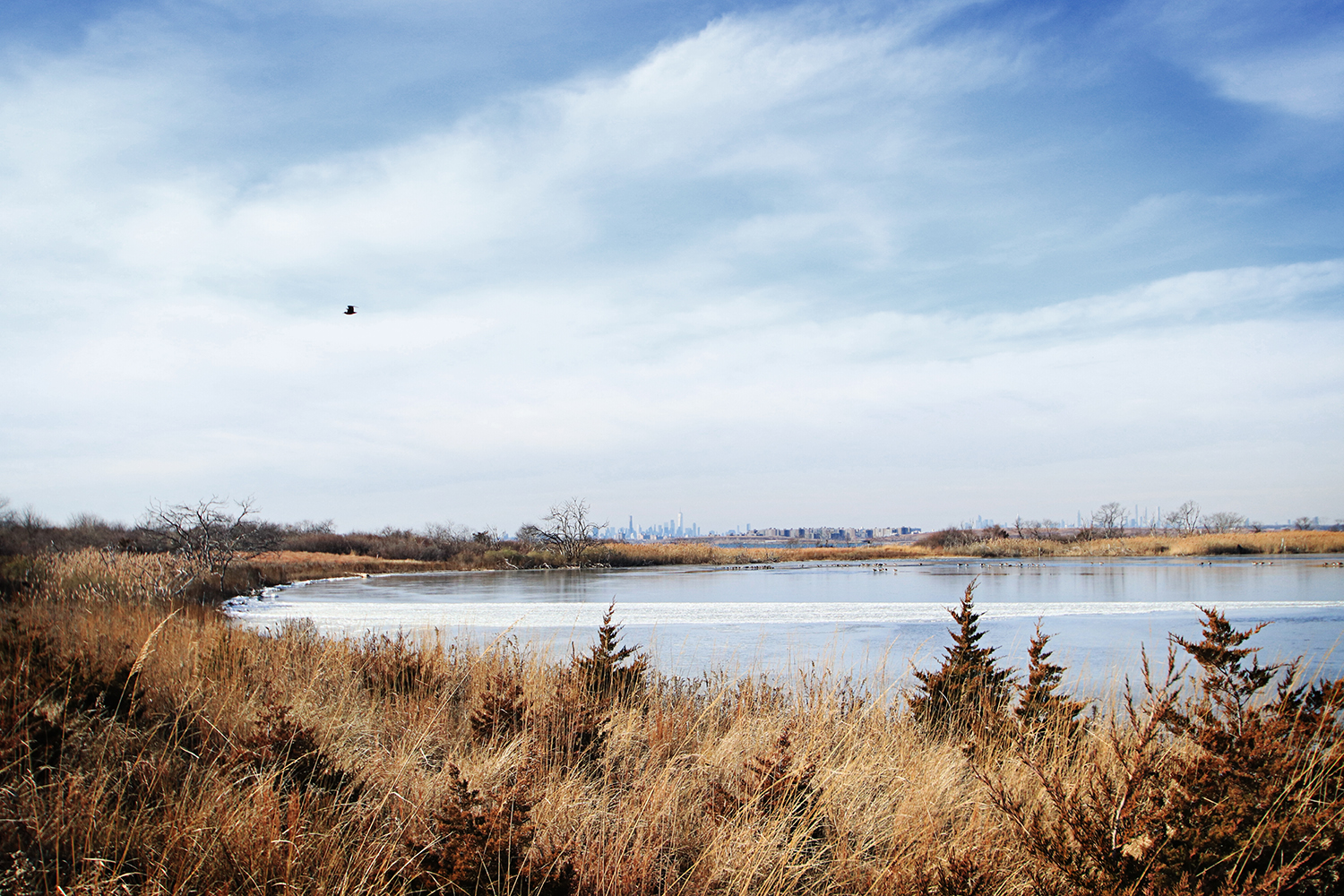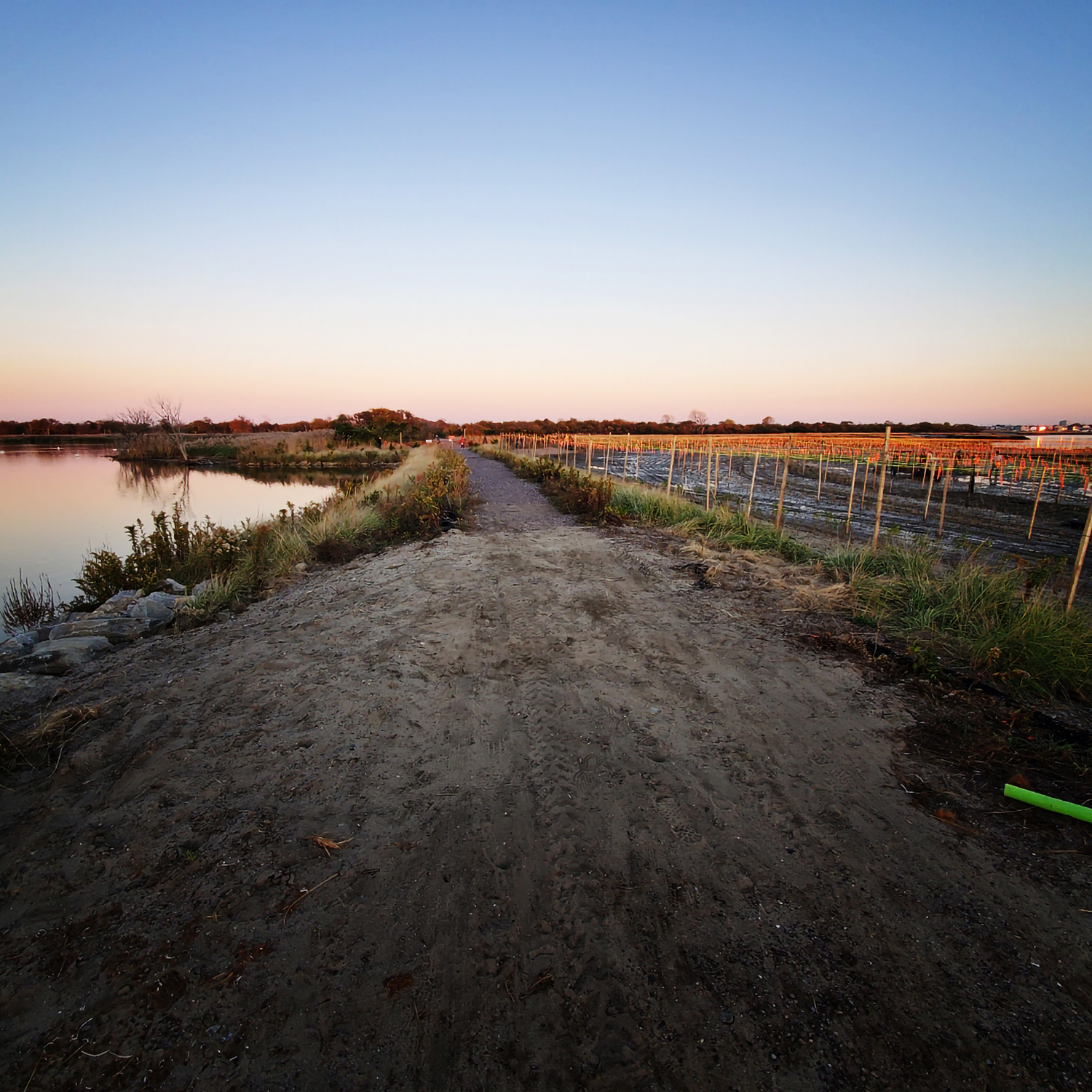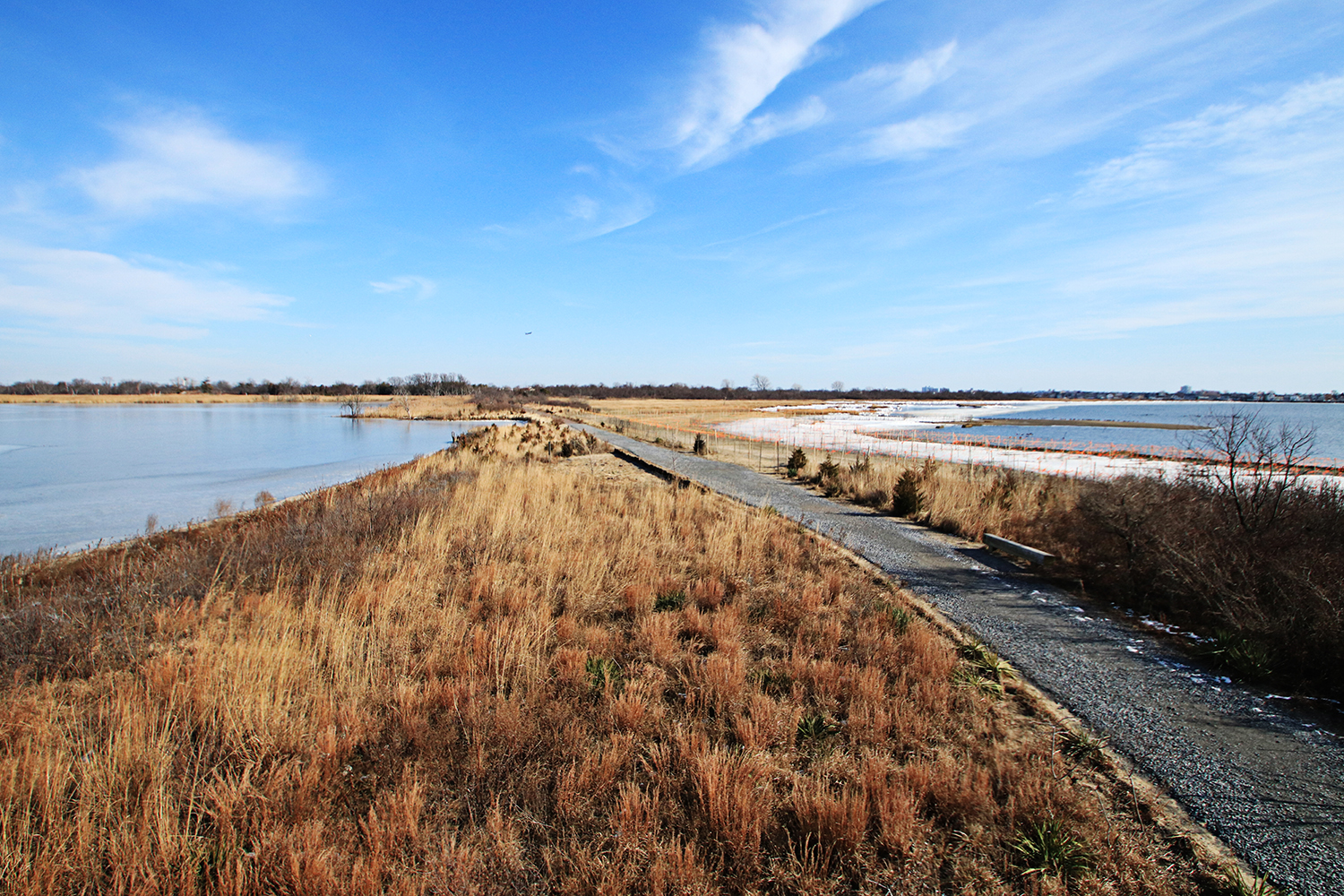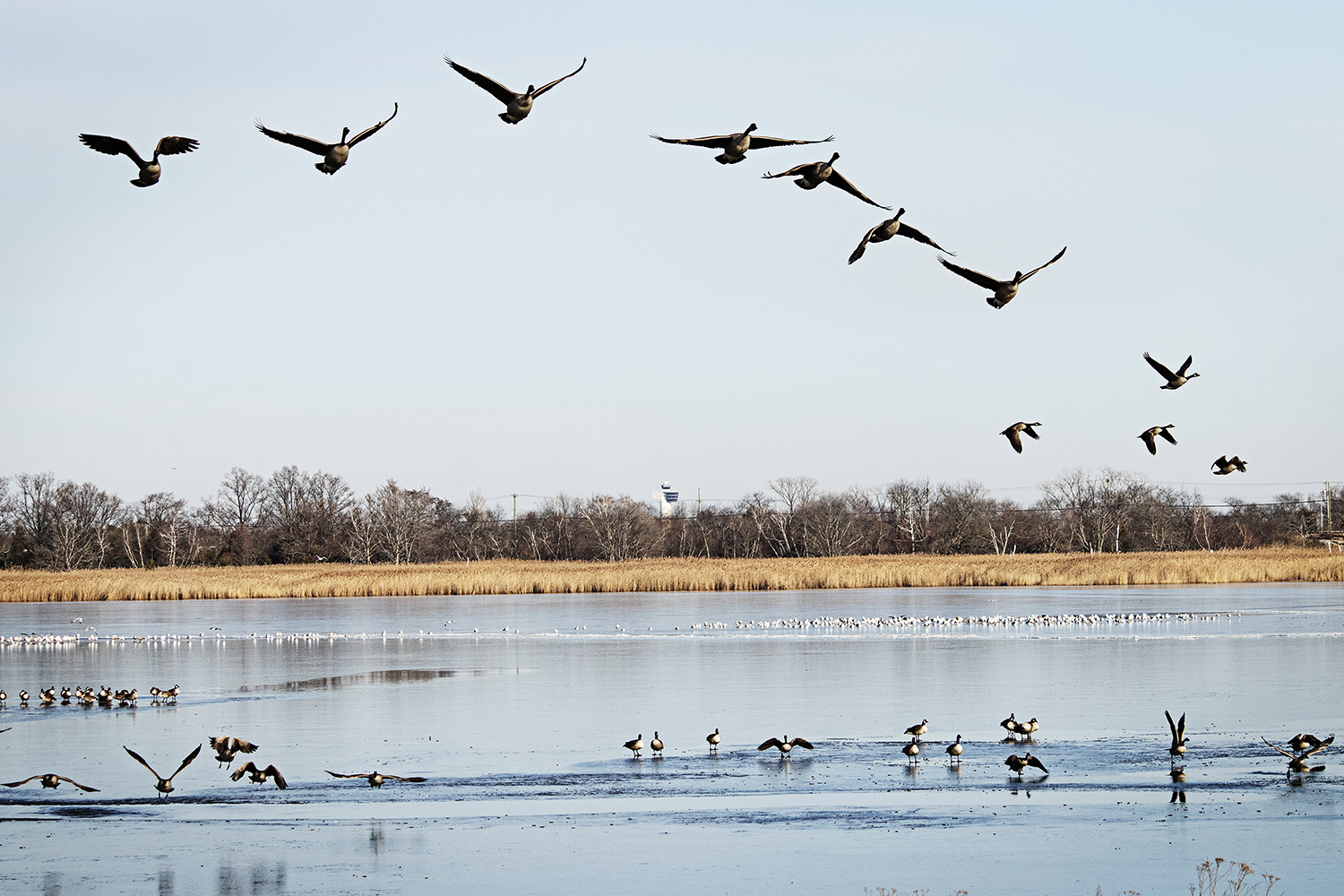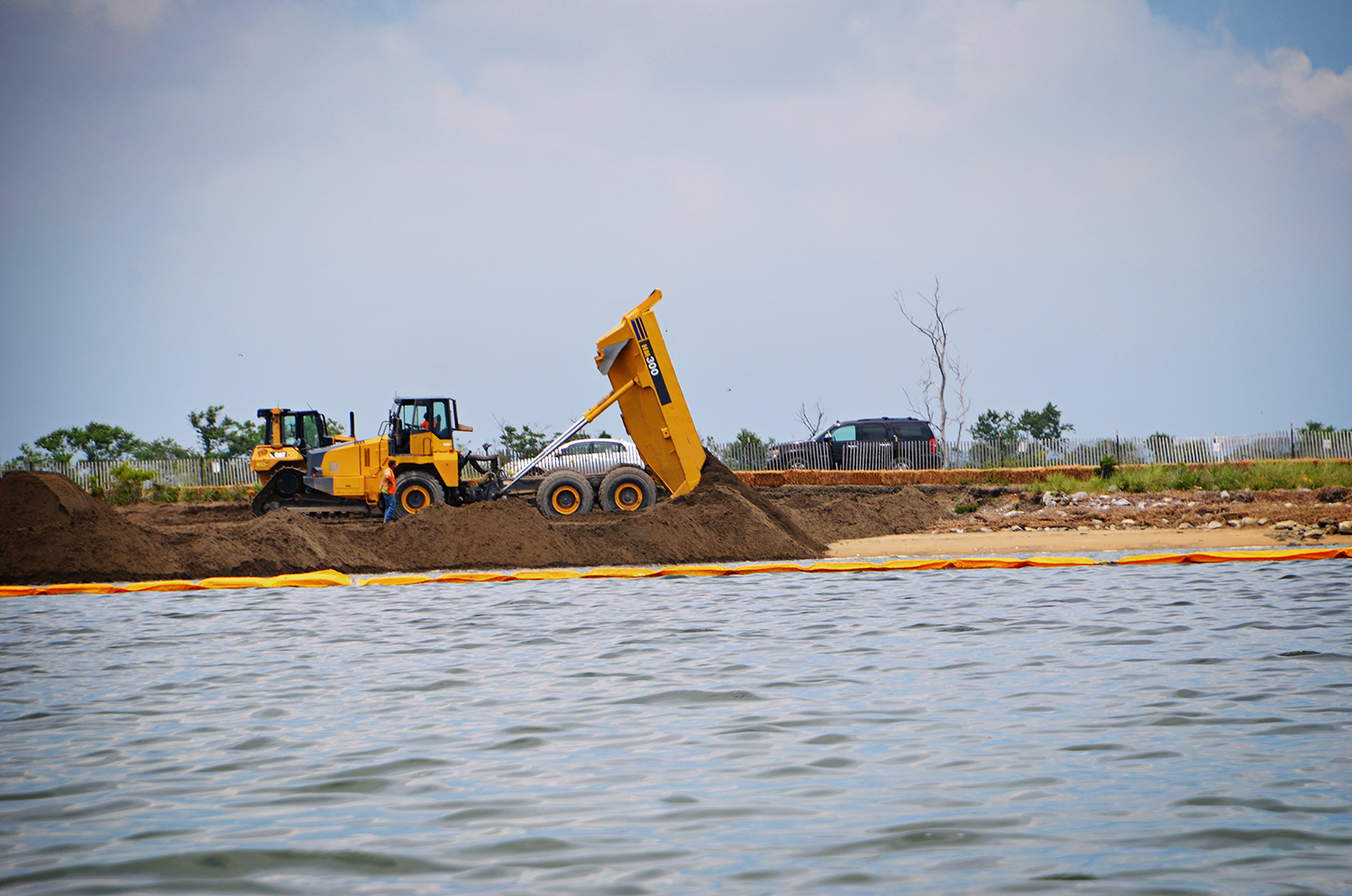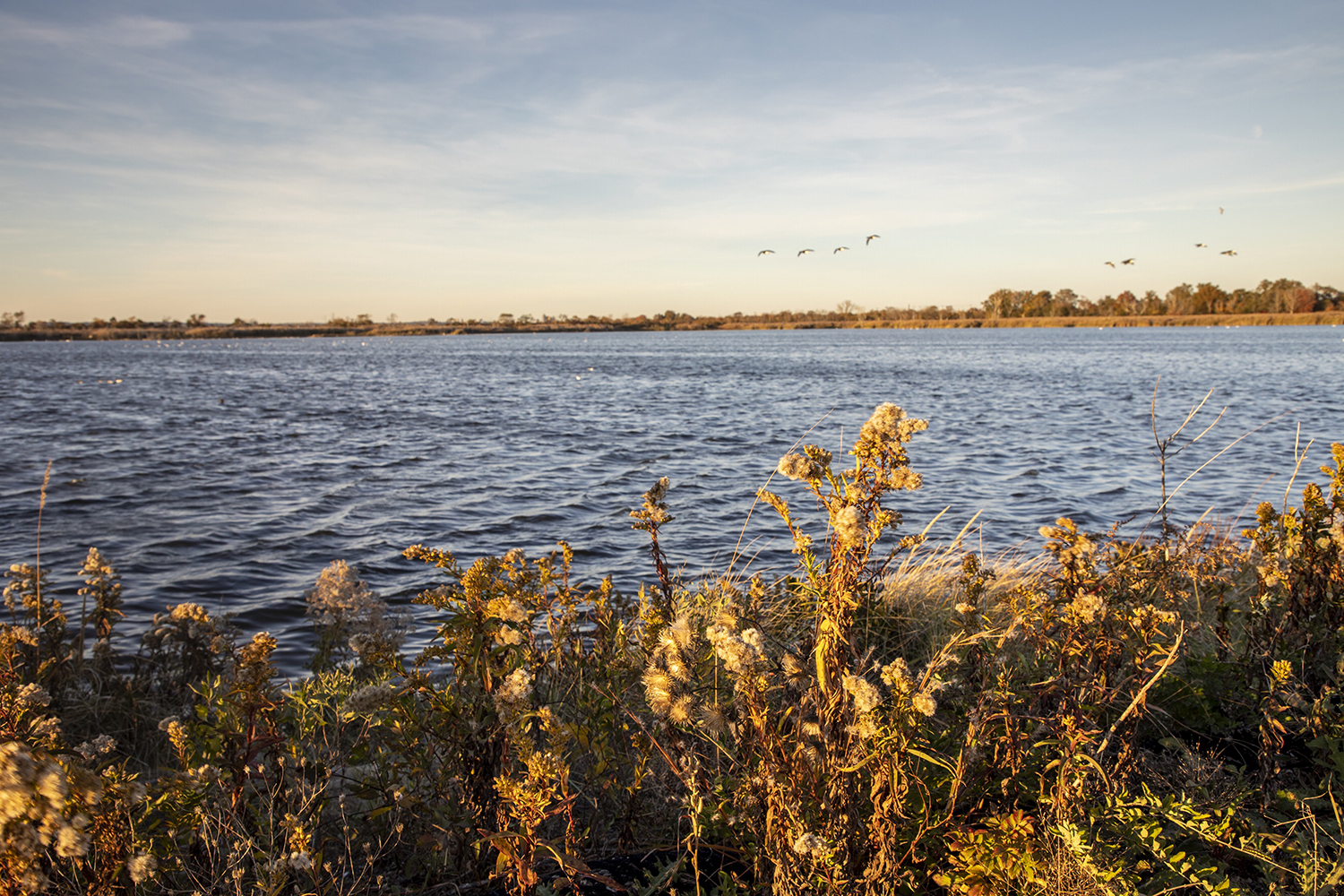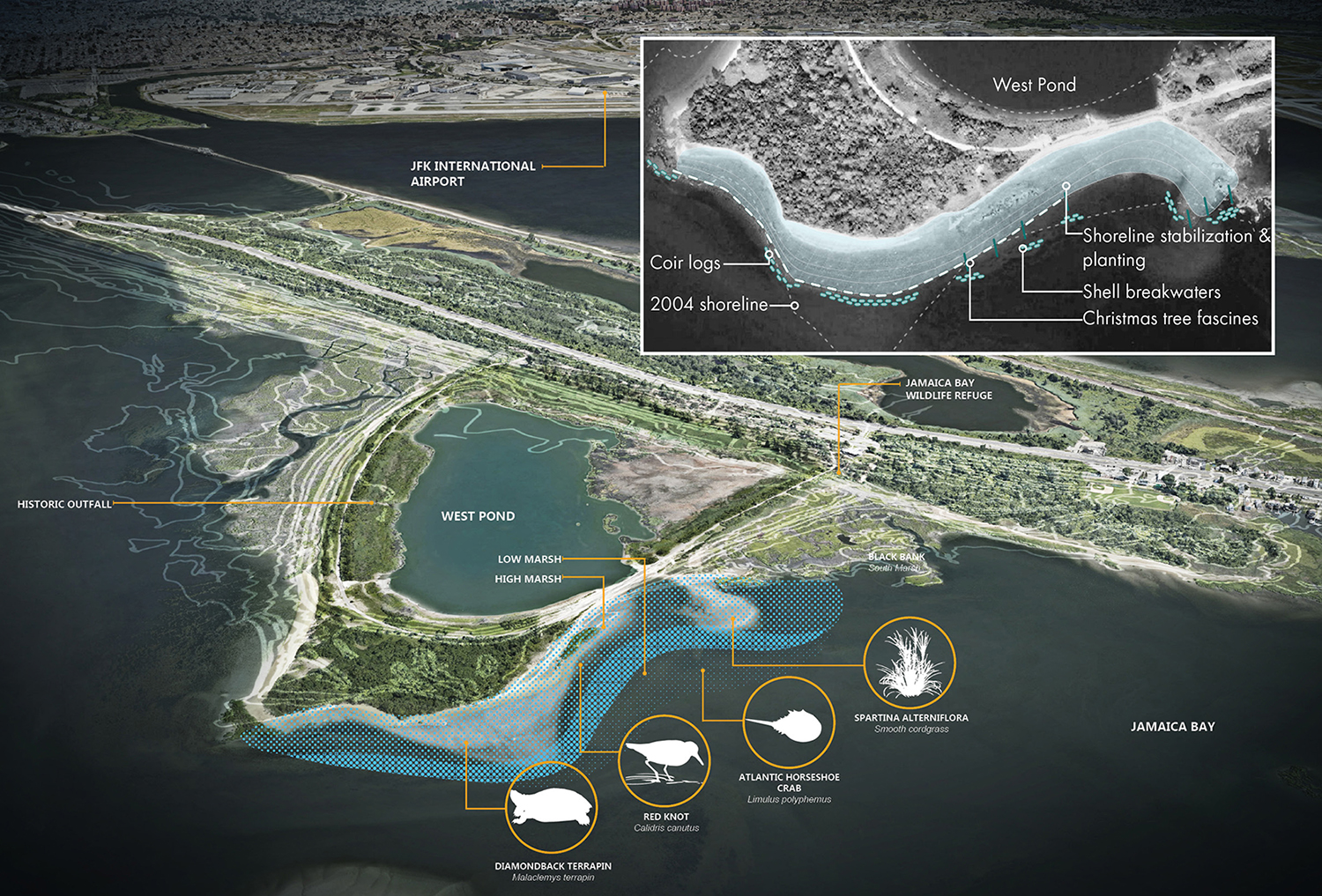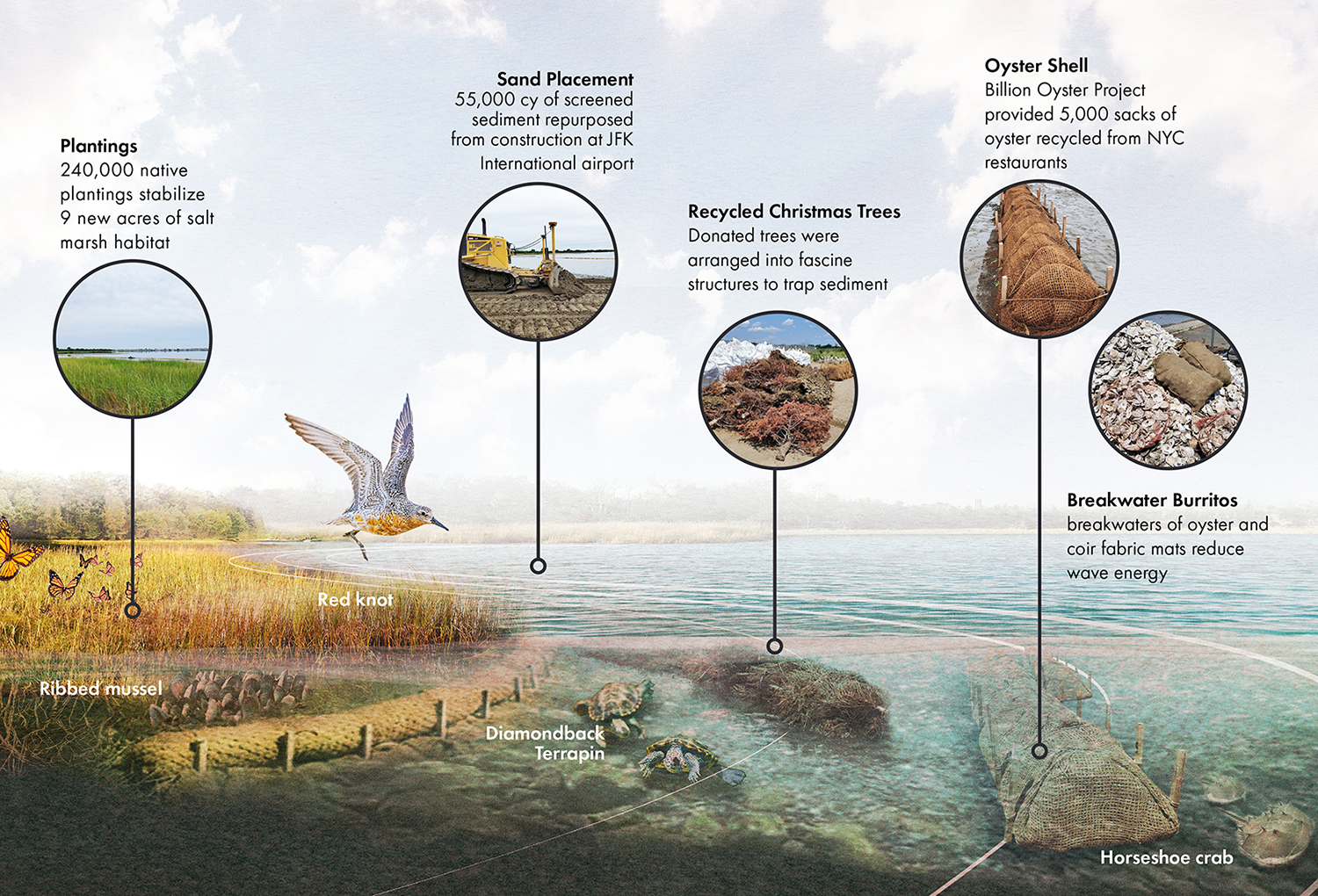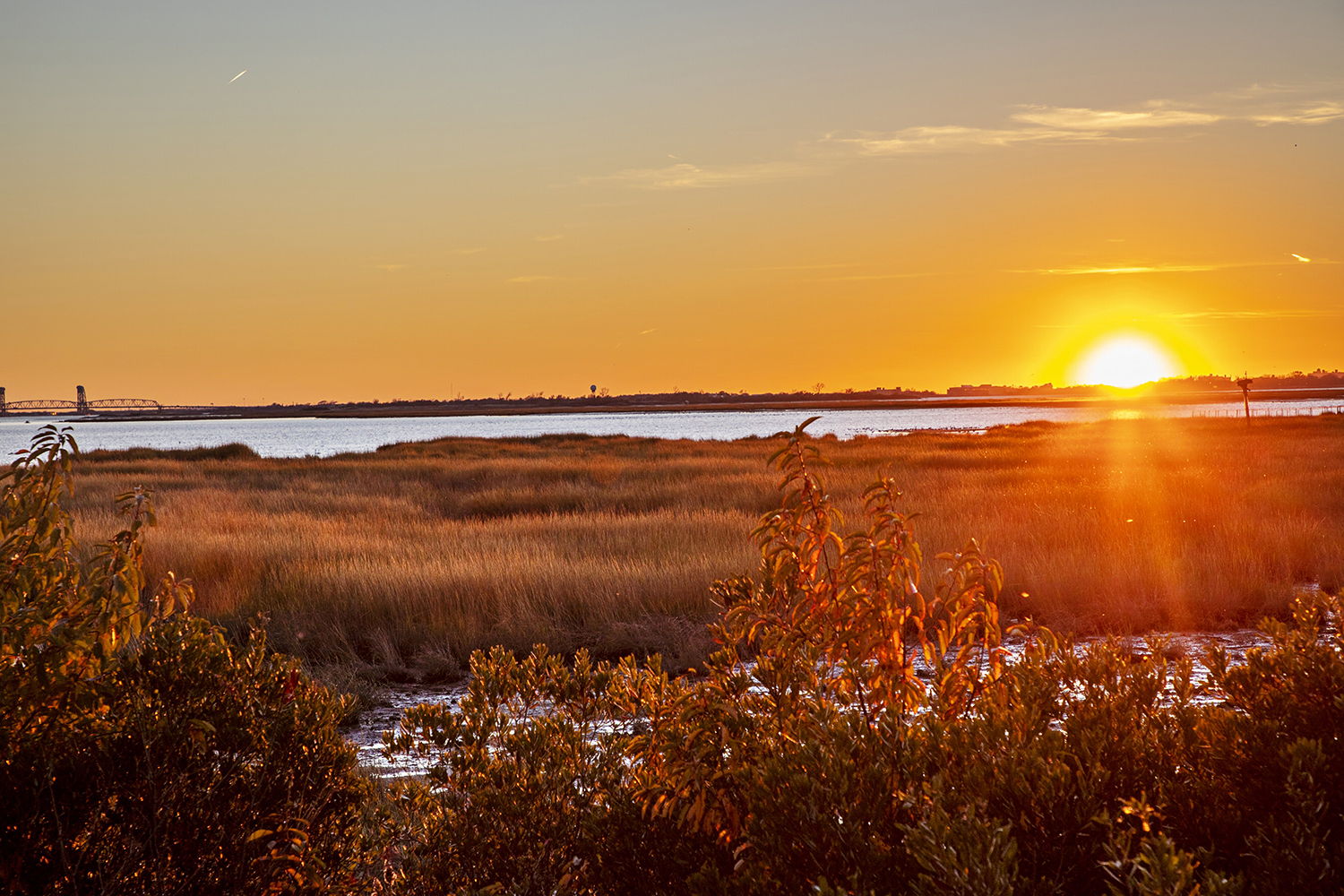West Pond Living Shoreline
Queens, New York
The challenges at West Pond, a 45 acre constructed freshwater pond, are a microcosm of the challenges of Jamaica Bay at large – sediment starvation and diminishing marsh accretion rates, nutrient loading compromising marsh vegetation, and the threats of sea level rise and increased storm severity upending a fragile system. After a breach during Superstorm Sandy and the washout of protective mudflats, the vulnerable habitat of West Pond was only guarded from saltwater inundation by a narrow, hastily constructed dam that was exposed to the open bay.
Through a relationship with Jamaica Bay Rockaway Parks Conservancy (JBRPC), Dirtworks Landscape Architecture assembled a team of professionals to develop and engineer a sustainable living shoreline, restoring almost nine acres and 2,600 linear feet of coastal salt marsh habitat. This action improves resiliency for existing wetlands, shorelines, and other sensitive habitat areas, while also restoring and establishing coastal salt marshes.
To accomplish this goal, the project team proposed a series of integrated and overlapping erosional control structures such as coir logs, shell-bag breakwaters, and fascines to attenuate wave action, improve water quality, and support the reemergence of critical mudflats and marsh habit.
The project team’s living framework supports both the immediate need to restore the pond edge while also supporting the ongoing adaptation of our most vulnerable ecosystems to the myriad challenges brought on by a changing climate.
Through a relationship with Jamaica Bay Rockaway Parks Conservancy (JBRPC), Dirtworks Landscape Architecture assembled a team of professionals to develop and engineer a sustainable living shoreline, restoring almost nine acres and 2,600 linear feet of coastal salt marsh habitat. This action improves resiliency for existing wetlands, shorelines, and other sensitive habitat areas, while also restoring and establishing coastal salt marshes.
To accomplish this goal, the project team proposed a series of integrated and overlapping erosional control structures such as coir logs, shell-bag breakwaters, and fascines to attenuate wave action, improve water quality, and support the reemergence of critical mudflats and marsh habit.
The project team’s living framework supports both the immediate need to restore the pond edge while also supporting the ongoing adaptation of our most vulnerable ecosystems to the myriad challenges brought on by a changing climate.
Size
9 acres of new habitat
14 acres restored
Collaborators
JBRPC
Rippled Waters
Engineering Great Ecology
Rippled Waters
Engineering Great Ecology
Awards
ASLA NY Honor Award 2022
ASLA National Honor Award 2022
ASLA National Honor Award 2022
